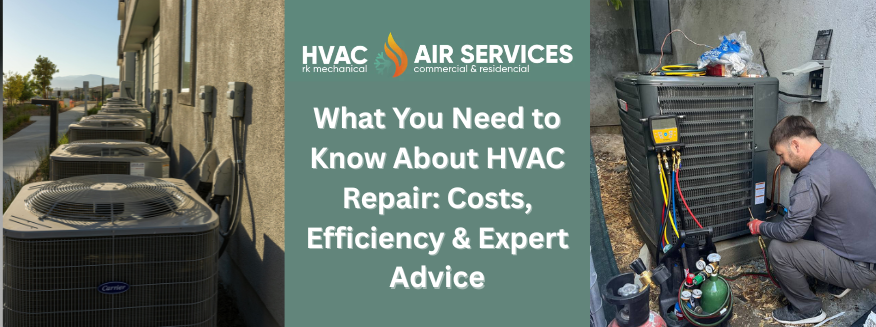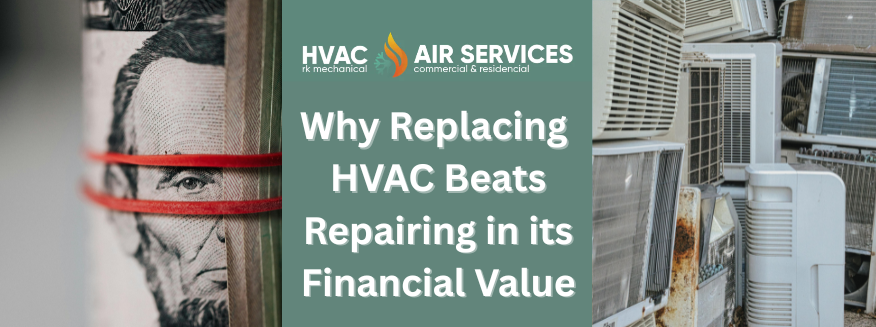Your air conditioner is designed to keep your home cool and comfortable, but occasionally, you might notice water pooling around it. This is usually a sign of an underlying issue that needs immediate attention. An AC leaking water can lead to structural damage, mold growth, and decreased efficiency of your unit. Understanding the reasons behind this issue is the first step to resolving it effectively.
Busy on the move? Listen to this podcast on the same topic:
Common Causes of an AC Leaking Water
1. Blocked Condensate Drain Line
The condensate drain line is responsible for carrying away moisture collected from your home’s air. Over time, dirt, algae, or mold can clog this line, causing water to back up and leak from your unit.
2. Dirty Air Filters
Dirty or clogged air filters restrict airflow, leading to the evaporator coil freezing. When the coil melts, excess water can overflow the drain pan and cause leaks.
3. Low Refrigerant Levels
Low refrigerant levels can reduce pressure in the system, leading to freezing of the evaporator coil. Once it thaws, the excess water may overwhelm the drainage system.
4. Damaged or Rusted Drain Pan
Older AC units often have corroded or damaged drain pans that can’t hold water effectively, resulting in leaks.
5. Improper Installation
If your AC unit was not installed correctly, improper leveling might prevent water from draining properly, leading to leakage.
How to Fix an AC That’s Leaking Water
1. Clearing the Condensate Drain Line
Use a wet/dry vacuum to remove clogs from the drain line. Alternatively, flushing the line with a mixture of water and vinegar can also clear minor blockages.
2. Replacing Air Filters
Check your air filters regularly and replace them every 1-3 months to ensure optimal airflow and prevent coil freezing.
3. Refilling Refrigerant
If your refrigerant levels are low, contact a professional technician to identify leaks and refill the system safely.
4. Inspecting and Repairing the Drain Pan
Inspect the drain pan for cracks or rust. Temporary fixes include using a water-resistant sealant, but long-term solutions require replacing the pan.
Preventive Measures to Avoid Water Leaks
- Regular Maintenance: Schedule periodic AC check-ups to identify and resolve potential issues before they escalate.
- Keep the Area Clean: Ensure the space around your AC unit is free of debris and moisture.
- Install a Float Switch: A float switch can shut off your AC if water levels in the drain pan rise too high, preventing overflow.
- Use Insulation: Insulating the drain line can prevent condensation buildup, reducing the risk of leaks.
When to Call a Professional HVAC Technician
While some fixes are DIY-friendly, complex issues like refrigerant leaks or persistent drainage problems require professional assistance. Technicians can diagnose hidden issues and provide long-term solutions to keep your system running smoothly.
FAQs About AC Leaking Water
1. Is it normal for an AC to drip water occasionally?
Yes, slight condensation is normal, but consistent dripping or pooling indicates a problem that needs addressing.
2. How much does it cost to fix a leaking AC?
The cost varies based on the issue. Minor fixes like cleaning the drain line can cost $100-$200, while major repairs might exceed $500.
3. Can a leaking AC damage my home?
Yes, prolonged leaks can cause water damage, mold growth, and structural issues.
4. What happens if I ignore a leaking AC?
Ignoring the issue can lead to increased repair costs, reduced efficiency, and potential health hazards from mold.
5. How often should I maintain my AC to prevent leaks?
Schedule professional maintenance at least once a year and clean filters monthly during peak usage.
6. Can I prevent water leaks with a dehumidifier?
While a dehumidifier reduces overall moisture, it doesn’t directly prevent AC leaking water caused by mechanical issues.
To make winter preparation even easier, consider exploring our Comfort Club membership. As a member, you’ll benefit from seamless seasonal maintenance, exclusive discounts, and tailored service plans. Choose from flexible options, including subscription plans, one-time visits, or customized quotes. Visit our Comfort Club page for more details and sign up today. Prepare your HVAC system with ease, so you can fully enjoy the season!





































